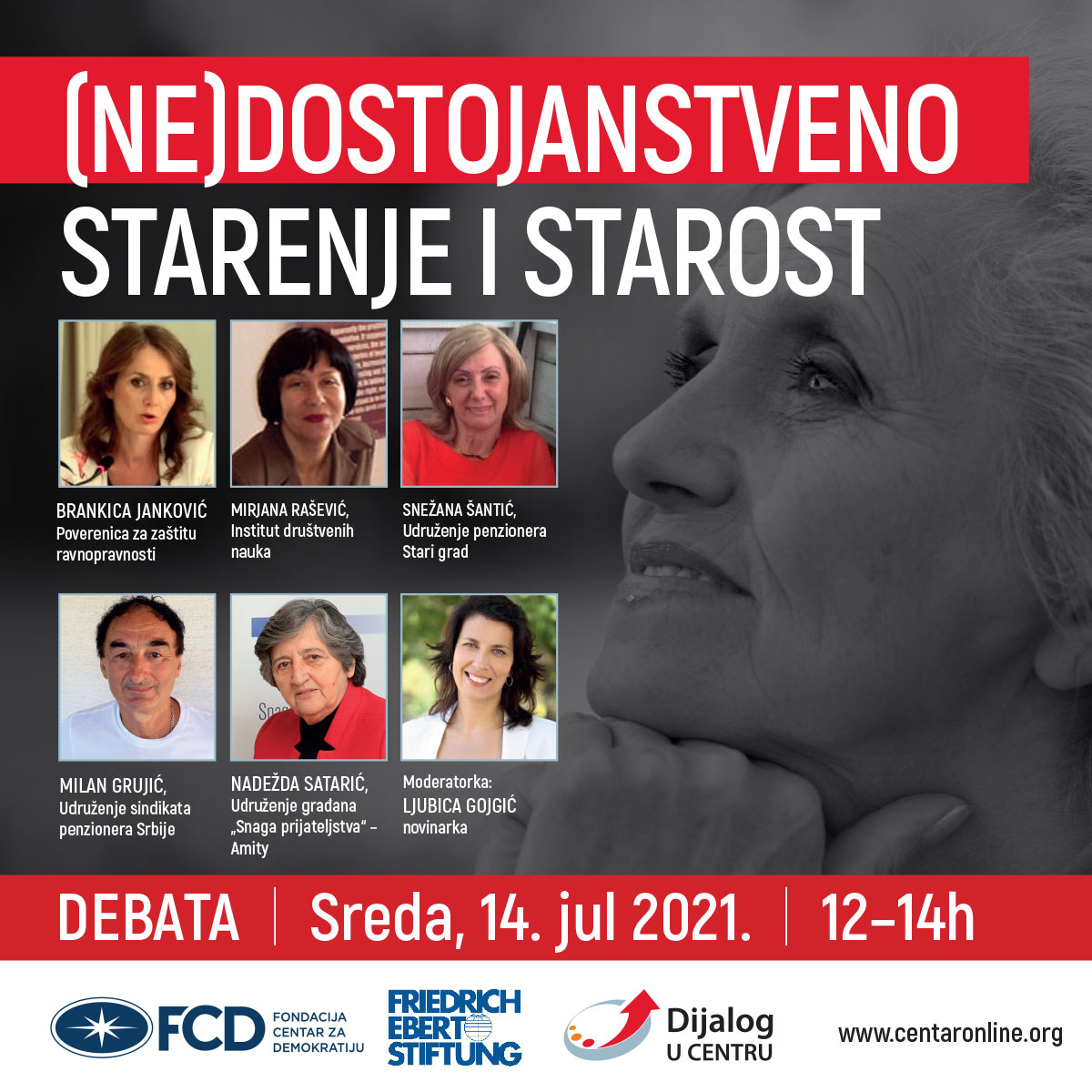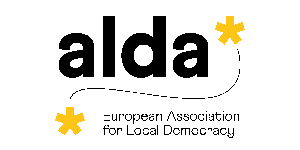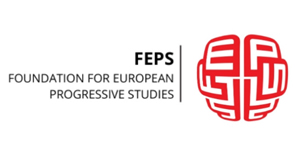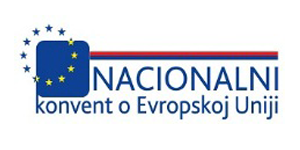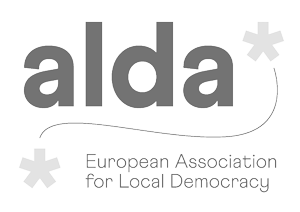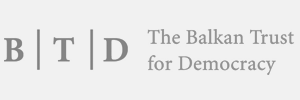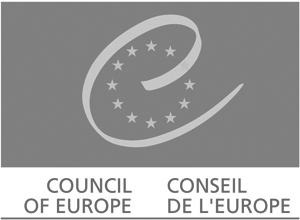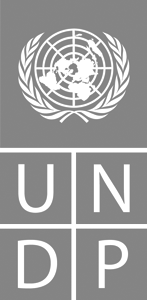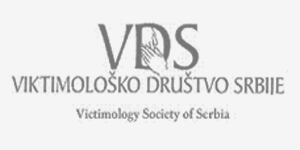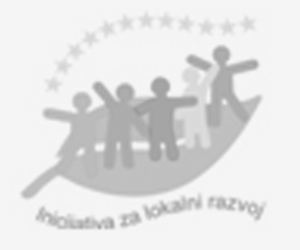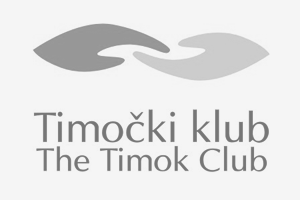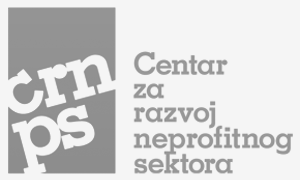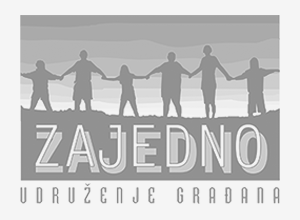Debate: (Un)Dignified Ageing and Old Age
CENTER DIALOGUE – SOCIAL DIALOGUE
On 14 July, 2021, the Center for Democracy Foundation organised the debate: (Un)Dignified Ageing and Old Age in collaboration with the Friedrich Ebert Foundation.
Should pensions be classified as an economic or social category? Are pensioners becoming welfare cases? The economic crisis caused by the corona virus pandemic could fundamentally alter social relationships at their core and destroy the position of many groups in our society, and among those under threat are a large number of pensioners. At a time of increasing economic disparity, there is a downward trend in the replacement rate, which is undermining the adequacy of pensions. Retirement conditions are becoming stricter and at the same time we have the simultaneous feminisation of the poverty of the elderly. Over 160 thousand elderly people have been left without any sort of pension, and 329,925 pensioners receive less than RSD 15,113 per month. How is this situation sustainable for the average Serbian family, which more often than not, depends on the pensions of its oldest members? The rate of dependence of the elderly increases year after year, and projections are that by 2040, for every five inhabitants of working age, there will be two persons over the age of 65.
With this debate it was our intent to respond to the question: what type of future can Serbian pensioners look forward to? Also, under these increasingly difficult conditions caused by the economic crisis, we wish to consider the conditions of active ageing in Serbia as well as opportunities for activism of the elderly?
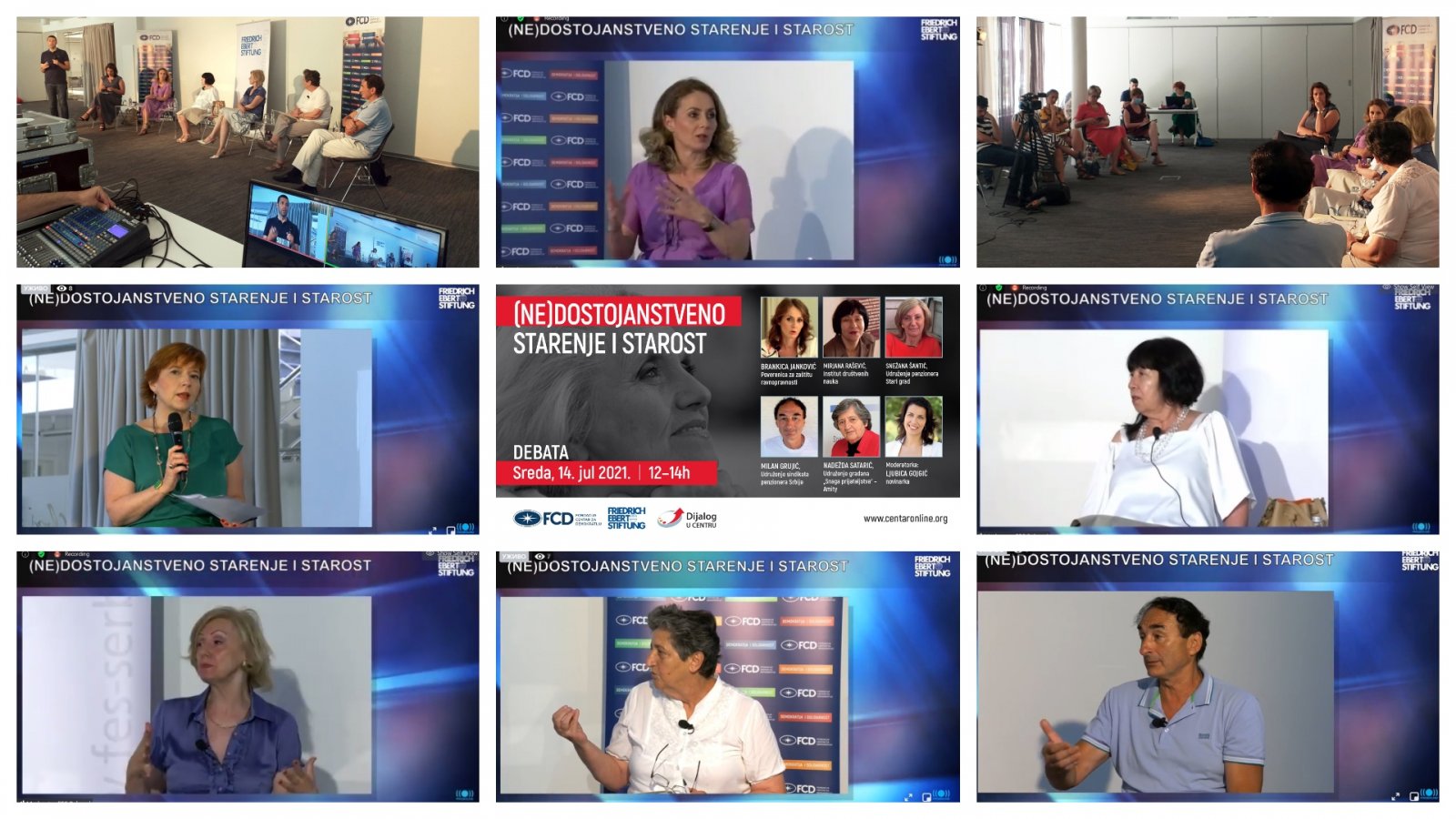
Keynote speakers during the debate included: Brankica Janković (Equality Commissioner); Mirjana Rašević, Institute of Social Sciences; Snežana Šantić, Stari Grad Pensioners’ Association; Milan Grujić, Association of Pensioners' Trade Unions; Nadežda Satarić, Amity Association – the Power of Friendship, and the discussion was moderated by Ljubica Gojgić, Journalist.
On behalf of the organisers, the debate was opened by Bojan Lađevac from the Friedrich Ebert Foundation and the Executive Director of the CDF, Nataša Vučković, who said that the Center for Democracy Foundation systemically deals with the issues facing the elderly, including their societal, economic and social position. We insist on intergenerational collaboration and exchange, the eldest members of a community have a lot to offer society. For us, the issues relative to the social situation of the elderly are important: to what extent are they economically protected and safe; to what extent are their rights protected; do they have access to justice; to what extent are they a part of the soc ial solidarity of their communities. It is our job to work of the eradication of poverty and discrimination in Serbia. Thus, the priorities are: active participation of the elderly in economic, social and cultural life; the fight against discrimination against the elderly and the fight against poverty; intergenerational interdependence and solidarity.
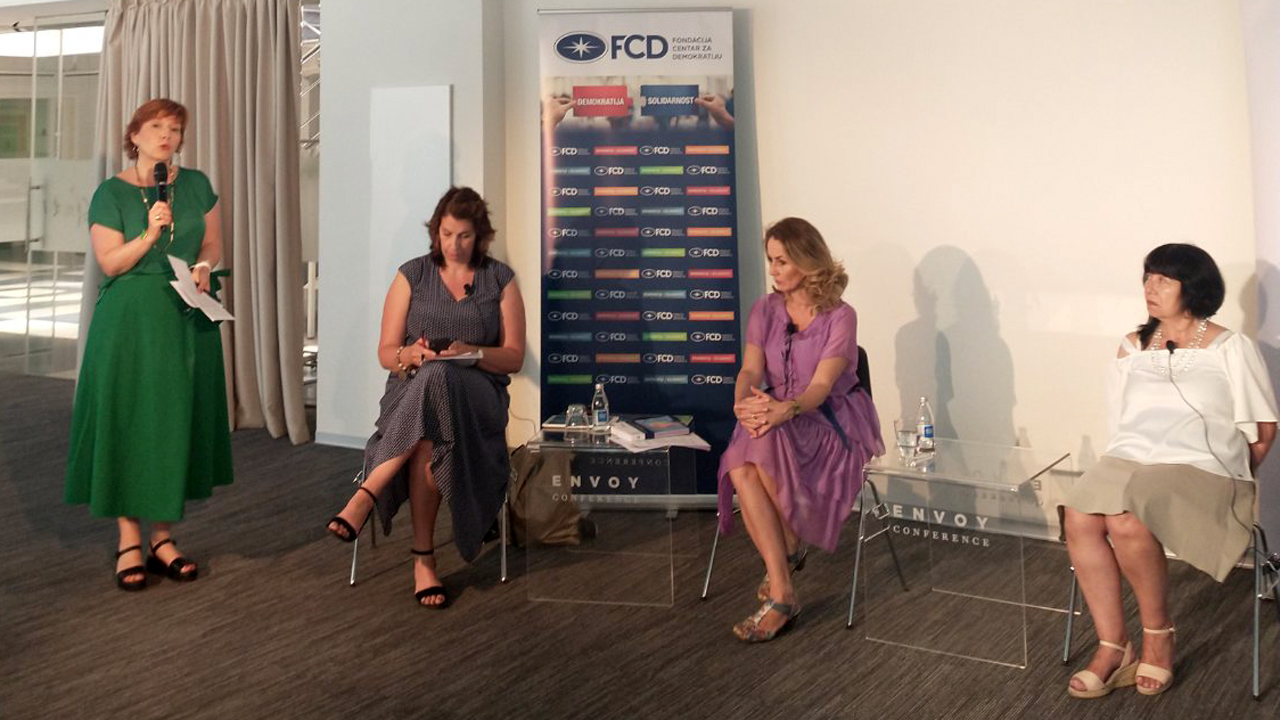
Brankica Janković (Equality Commissioner) announced that the elderly in Serbia are exposed to various forms of discrimination, neglect, self-neglect and violence, and warned that the dominant narrative in the public is that there are too many elderly people who are costing us a fortune, a burden to the pension and healthcare fund, and this has consequently created a negative attitude towards the elderly, essentially stigmatising this group. The general population complains about administrative obstacles. We need to create and implement a strategic document. This strategy should clearly indicate the obligations of the state and what is to be left to the civil sector. We are in favour of introducing social pensions, as the idea of leaving any of our people without an income is unjustifiable, the Commissioner said.
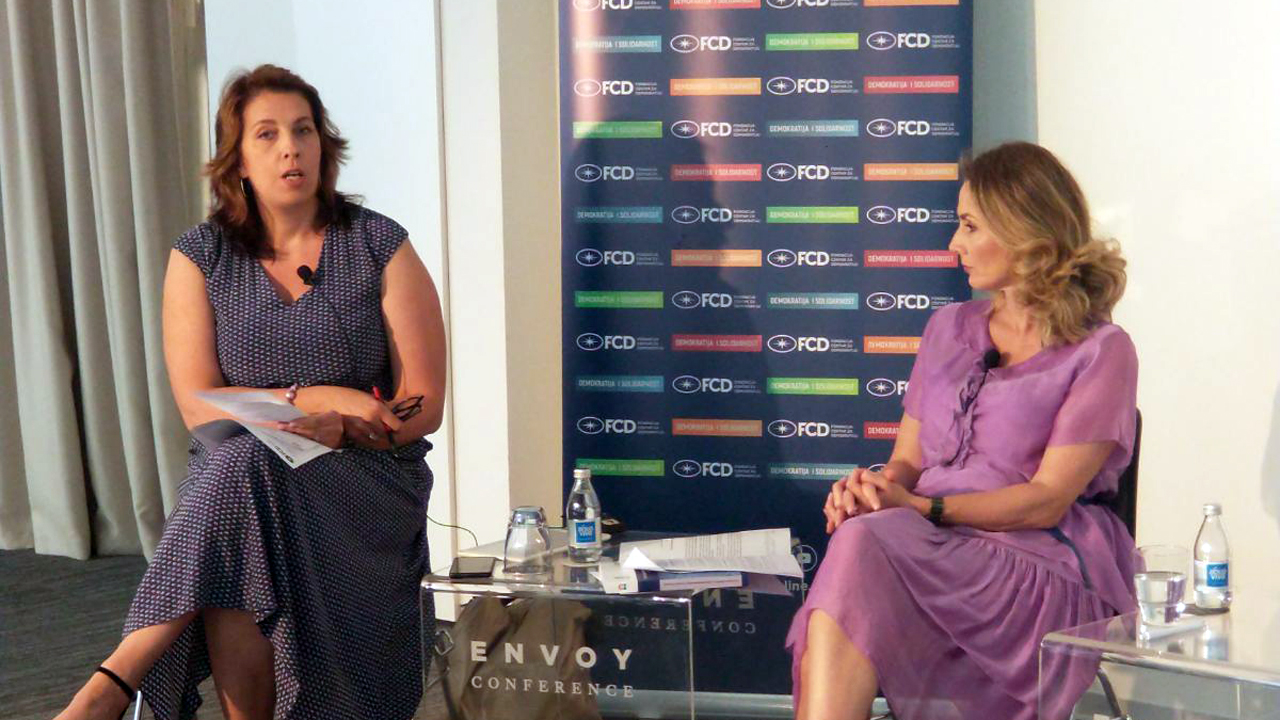
Mirjana Rašević (Institute of Social Sciences) indicated that every fifth inhabitant of Serbia, that is, a total of 1,456,000 people, are over the age of 65, and that there are 38% more elderly over the age of 65 than there are youths under the age of 15. Serbia is an exceptionally ageing population, and I would say that this is the only trend in which we are on par with developed countries. All projections indicate that by the middle of the century, Serbia will be an older and less populated country in comparison to today, and the contingent workforce will be the same. The concept of active ageing is the best response to these challenges, the elderly must be included in the process of finding new solutions, ones that are founded on examples of good practice. Social innovation and creativity also need to be employed in finding solutions here.
Snežana Šantić (Association of Pensioners - Stari Grad) emphasised that field work is very important, as is solidarity. Loneliness is the deadliest of all the diseases, 40,000 people have gone through counselling in our centre over the last 12 years. A third of the elderly living in the municipality of Stari Grad live completely alone. Pensioners remember a time when they were more active in society, our country lacks senior centres and old age homes in all of its municipalities. If the Government were to back this, things would be different. These are generations that still have faith in their government, and the Government must not betray that trust.
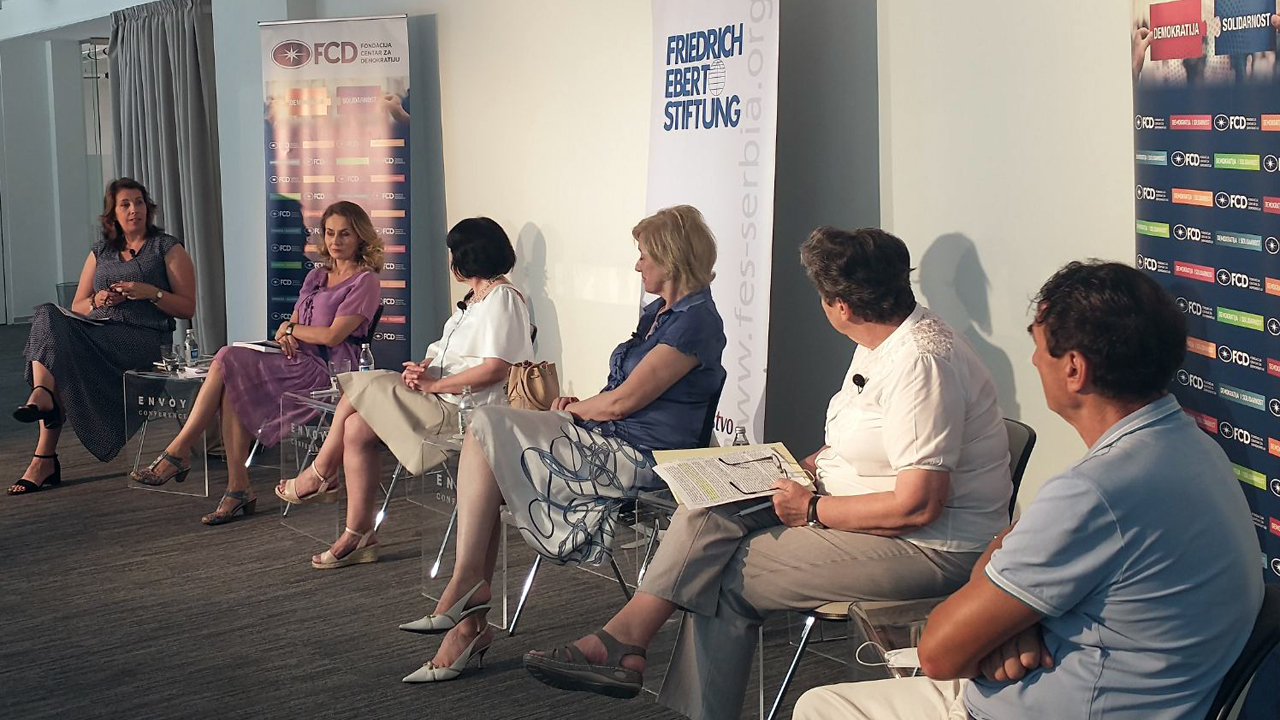
Milan Grujić (Association of Pensioners' Trade Unions) indicated that the core condition for the survival of pensioners is that they have an income; today’s pensioners are as poor as the countries they live in. The pension is a social category, it is not enough to survive on, the minimum consumer basket is higher than the average pension, and most pensioners cannot meet their basic needs. The pension fund has become prey to politics. The real estate on which specialistic hospitals and health spas are located is financed from the PIO (pension and disability insurance) fund, yet are sold for peanuts.
Nadežda Satarić (Amity Association – the Power of Friendship) emphasised that stable families have a better chance of dignified ageing, which is both a normal and expected phenomenon. When issues and health concerns arise, families have their own strategies on how to deal with these challenges. In Serbia, over 40% of the elderly have an unmet need for assistance, these are mainly poor pensioners with measly pensions and are over the age of 75. There is a lot we have to do to change things, but we do have examples of good practice.
We organised the debate in collaboration with the Friedrich Ebert Foundation through the project entitled CENTER DIALOGUE – SOCIAL DIALOGUE.
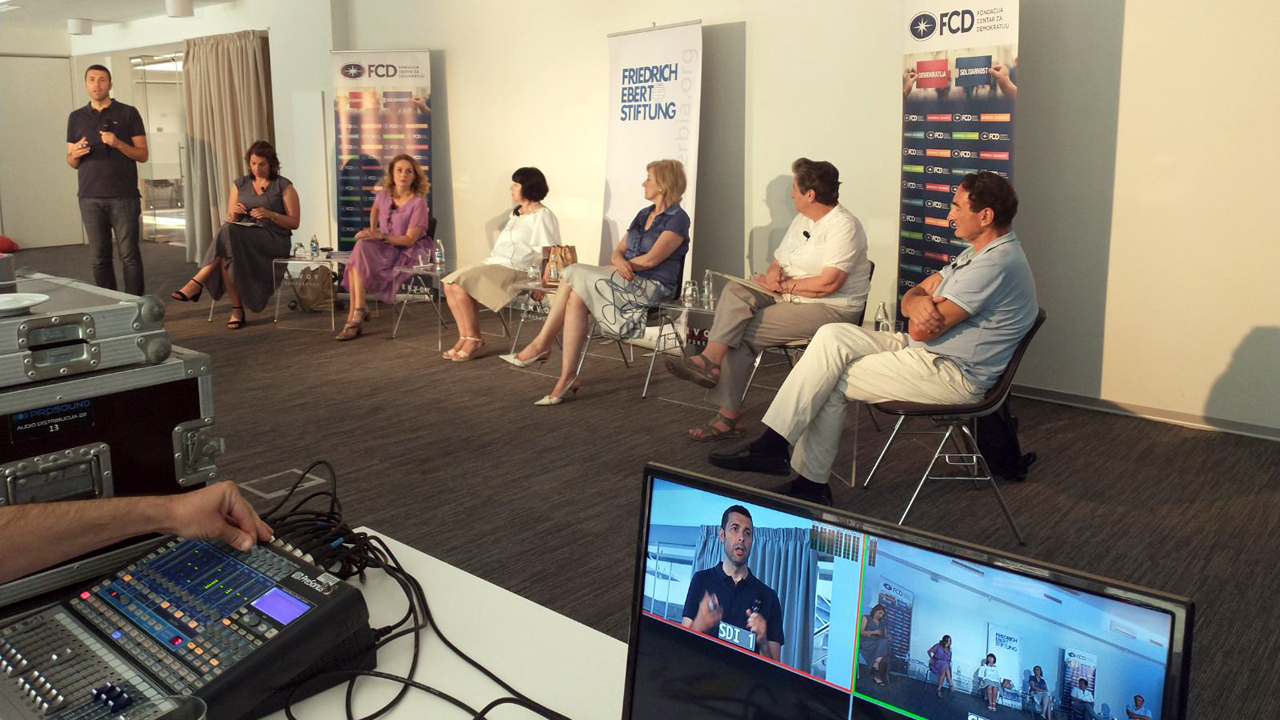
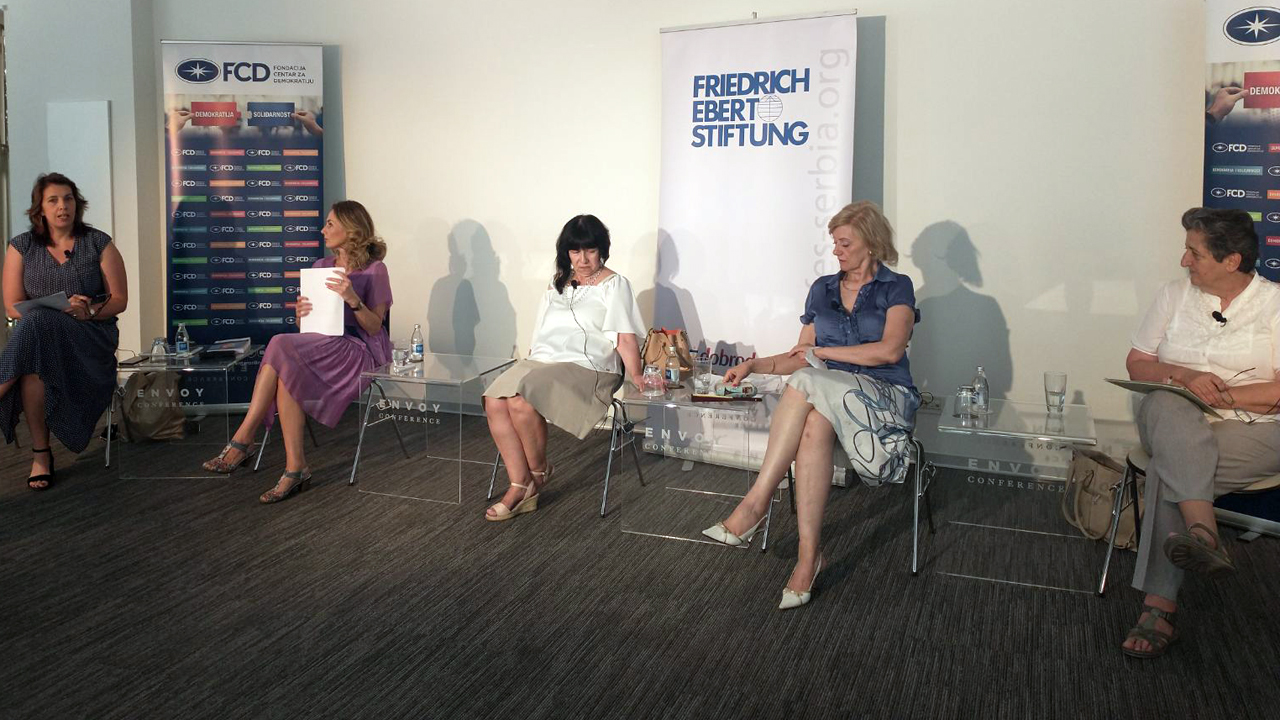
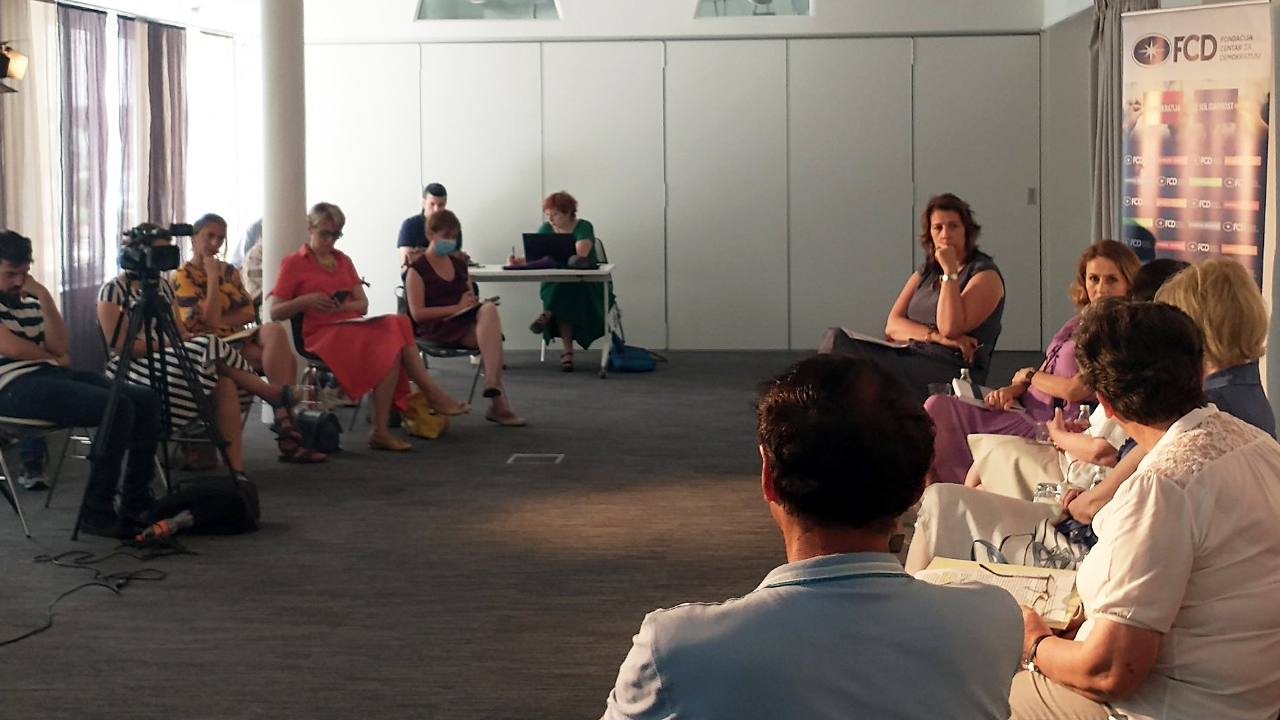
Center for Democracy Foundation
Janković: Stariji su stigmatizovani, dominantan narativ da „opterećuju“ PIO (TV N1)
Poverenica za zaštitu ravnopravnosti, „Diskriminacija starih“ (FoNet)
Dostojanstveno starenje u Srbiji: preko 160.000 starih ne prima nikakvu penziju (Masina.rs)
Janković: Stariji u Srbiji stigmatizovani, diskriminisani i „svedeni na stvar“ (EuroNews Serbia)
Diskriminacija starih (Jugpress)
Video
Debata „(NE)DOSTOJANSTVENO STARENJE I STAROST“
PUBLICATIONS
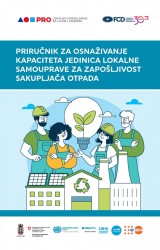 Manual for Strengthening the Capacities of Local Self-Government Units for the Employability of Waste Pickers
Manual for Strengthening the Capacities of Local Self-Government Units for the Employability of Waste Pickers
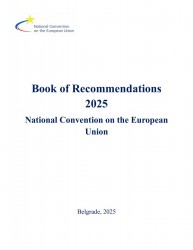 NCEU Book of Recommendations 2025
NCEU Book of Recommendations 2025
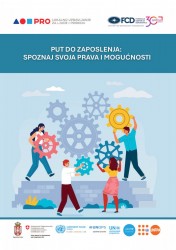 Manual “The Path to Employment: Get to Know Your Rights and Opportunities”
Manual “The Path to Employment: Get to Know Your Rights and Opportunities”
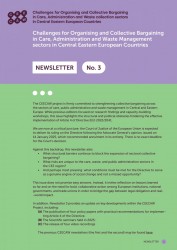 Challenges for Organising and Collective Bargaining in Care, Administration and Waste collection sectors in Central Eastern European Countries
Challenges for Organising and Collective Bargaining in Care, Administration and Waste collection sectors in Central Eastern European Countries
 Public Policy Proposals – Collective Bargaining (CEECAW)
Public Policy Proposals – Collective Bargaining (CEECAW)
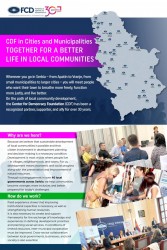 CDF in Cities and Municipalities: Together for a Better Life in Local Communities
CDF in Cities and Municipalities: Together for a Better Life in Local Communities
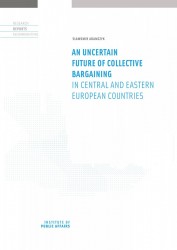 Comparative reports on collective bargaining - CEECAW
Comparative reports on collective bargaining - CEECAW
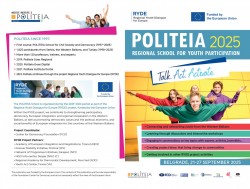 POLITEIA – Regional School for Youth Participation 2025 (leaflet)
POLITEIA – Regional School for Youth Participation 2025 (leaflet)
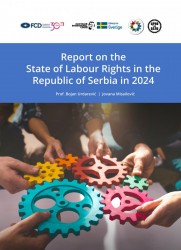 Report on the State of Labour Rights in the Republic of Serbia in 2024
Report on the State of Labour Rights in the Republic of Serbia in 2024
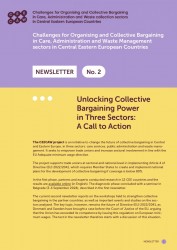 Unlocking Collective Bargaining Power in Three Sectors: A Call to Action
Unlocking Collective Bargaining Power in Three Sectors: A Call to Action
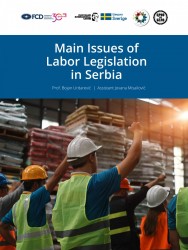 Main Issues of Labor Legislation in Serbia
Main Issues of Labor Legislation in Serbia
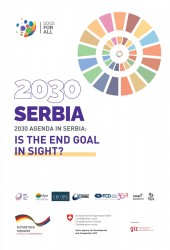 New Monitoring Report by the “SDGs for All” Platform: Is the End Goal in Sight?
New Monitoring Report by the “SDGs for All” Platform: Is the End Goal in Sight?
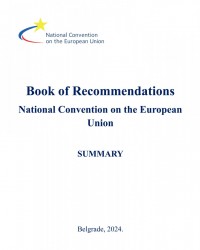 NCEU Book of Recommendations 2024 (Summary)
NCEU Book of Recommendations 2024 (Summary)
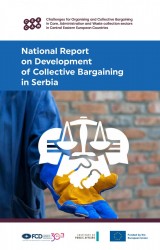 National reports on collective bargaining in Serbia - CEECAW
National reports on collective bargaining in Serbia - CEECAW
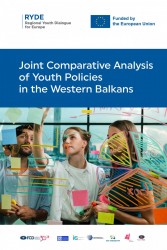 The Comparative Analysis of Youth Policies in the Western Balkans (WB)
The Comparative Analysis of Youth Policies in the Western Balkans (WB)
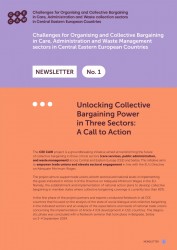 Unlocking Collective Bargaining Power in Three Sectors: A Call to Action
Unlocking Collective Bargaining Power in Three Sectors: A Call to Action
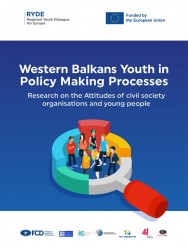 Western Balkans Youth in Policy Making Processes
Western Balkans Youth in Policy Making Processes
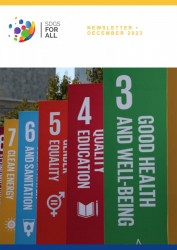 SDGs for All Platform newsletter (December 2023)
SDGs for All Platform newsletter (December 2023)


